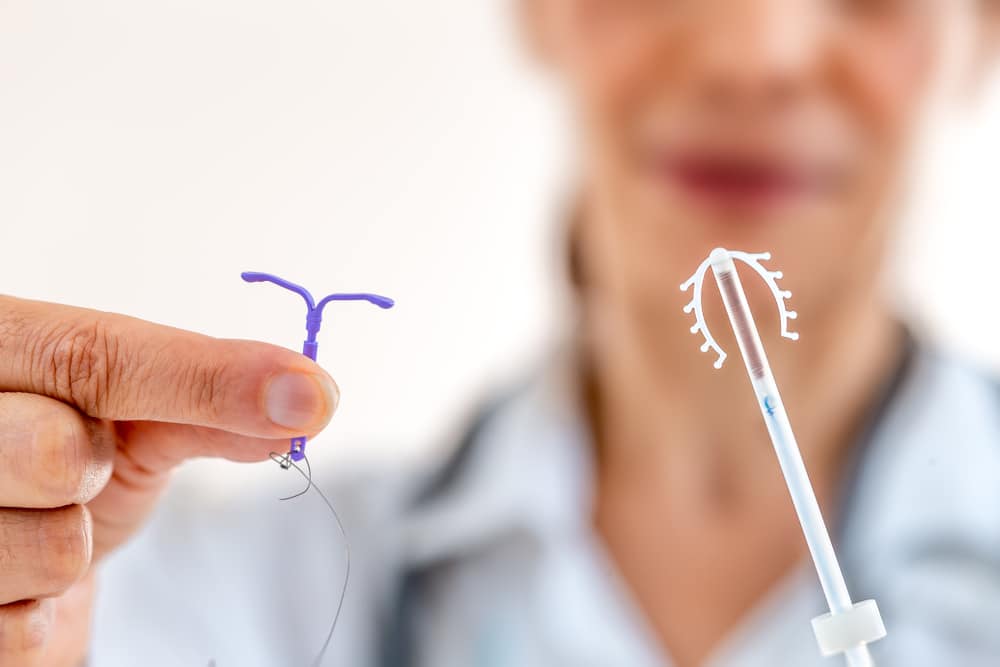For patients who are done having children or simply do not want to have children, long-term birth control options are available. To learn which one is truly right for you, it’s best to schedule an appointment with your OB/GYN to discuss all of your options. However, Dr. Silverstein explained the basic options that women have here.
Sterilization
Both men and women can pursue sterilization if they do not wish to have children and are interested in long-term birth control. Male sterilization, known as a vasectomy, is a fast, simple procedure that can be completed in as little as 30 minutes using just local anesthetic. Dr. Silverstein explains that “there’s no impact on sexual function, there’s no impact on the male ejaculate, and it’s durable and quite effective, relatively inexpensive, and a wonderful contribution for the male partner.”
For women, sterilization in the form of a tubal ligation (severing, blocking, or removing the fallopian tubes) has not always been recommended. Dr. Silverstein explains that “in the past, we’ve frowned on it, since it often warranted laparoscopic surgery, which requires general anesthesia and is a longer recovery.” However, new data shows that removing fallopian tubes rather than severing or blocking them “can give a woman a reduced risk of developing ovarian cancer in her life,” an added benefit to this permanent birth control method.
Intrauterine Device (IUD)
Intrauterine devices, or IUDs, are also good long-term birth control options. Copper IUDs, marketed as Paragard, can stay in place for up to ten years with few side effects. “The only real known side effect is that the menses may be a day or two longer or a pad or two heavier,” Dr. Silverstein explains. Progesterone-containing IUDs (Liletta, Mirena, Skyla, Kyleena) are also available. Depending upon which one is used, these last for 4-6 years. Progesterone IUDS may cause irregular bleeding for the first 3-6 months followed by lighter periods, though “a portion of women will skip their periods altogether.” As opposed to oral contraceptives, these only affect the uterus, and have no systemic effects. Both copper and hormonal IUDs can be removed at any time if you decide you do want to become pregnant.
Birth Control Pills
Combination (estrogen and progesterone) oral contraceptive pills are taken on a daily basis to prevent pregnancy. A variety of birth control pills are available, and when taking these, “there is a lifetime reduction in the risk of endometrial cancer, there’s a lifetime reduction in the risk of ovarian cancer, it minimizes the bleeding, and has no impact on breast cancer; it’s very helpful for women with heavy periods” Dr. Silverstein explains. However, some women don’t like that this method requires them to diligently remember to take a pill every day.
NuvaRing
The NuvaRing “is a rubber device that’s placed in the vagina,” explains Dr. Silverstein. “It stays there for three weeks and is removed and disposed of; then the period comes and one week later a new one is inserted.” This makes it a lower maintenance hormonal birth control method than birth control pills and avoids the occasional nausea they generate.
NexPlanon
NexPlanon is “a plastic insert that goes into the arm that can last for three years,” explains Dr. Silverstein. NexPlanon then releases progesterone to prevent pregnancy. Since NexPlanon doesn’t use estrogen, it makes a good option for patients who had negative experiences with other types of hormonal birth control. As with progesterone IUDs, these often cause several months of irregular and unpredictable bleeding, followed by lighter and occasionally absent menses. NexPlanon can be taken out at any time if you decide you want to get pregnant.
Depo-Provera
Depo-Provera injections, known as the “Depo Shot,” are scheduled “at three-month intervals” to prevent pregnancy. As with progesterone IUDs and NexPlanon, these often cause several months of irregular and unpredictable bleeding, followed by lighter and occasionally absent menses. Like NexPlanon, the Depo Shot does not contain estrogen and is 99% effective.
Schedule an Appointment
To learn more about your birth control options, schedule an appointment at Carnegie Women’s Health. Call our New York, NY office at (315) 628-7063 or request an appointment online.

